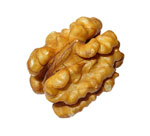New Advice on Preventing Falls
Posted by: admin on: August 2, 2011
- In: Geriatrics | Ortho-trauma
- Comment!
For the first time since 2001, the American Geriatrics Society and the British Geriatrics Society have updated their guidelines for preventing falls in older people.
The update includes two notable changes:
- One recommends tai chi — the meditative, slow-motion Chinese exercise — as an effective way to prevent falls, while another suggests that doctors review medication use by all elderly patients, with an eye toward reducing use of those drugs that increase the risk of falling.
Tai chi gets the nod because several trials have suggested that it seems to help reduce the risk of falling, she said, although it is possible that other forms of balance training work just as well.
Greg Fuller teaches tai chi at the Jewish Home in Los Angeles. “The basic underlying philosophy is that balance is everything,” he said. Most important for his students, whose average age is 90, tai chi involves small, slow, controlled motions.
With beginners, a lot of time is spent working while seated, bringing attention to the proper alignment of the pelvis, chest and head. Once that is accomplished, finding strength and balance while standing is much easier.
Even then, many students work standing just behind a chair. “The presence of the chair back within reach gives them a sense of security and confidence,” Mr. Fuller said. “They forget about the possibility of falling and concentrate on the movements.”
The geriatrics groups also have long recommended that the medication regimens of older patients be reviewed and, if possible, scaled back. Earlier guidelines called for reviewing medications only if a patient takes more than four. This time around, researchers say that all older patients ought to have their doctors review their prescriptions for any that might increase the risk of falling.
The updated guidelines distinguish between a fall that requires intervention and one that might be an isolated incident. The updated criteria for getting a risk evaluation are:
- An elderly person worried or frightened by a fall.
- Two or more falls in the past year.
- One or more falls with injury.
- Repeated difficulty with balance when walking
Read More on http://newoldage.blogs.nytimes.com/2011/02/17/new-advice-on-preventing-falls/?partner=rss&emc=rss
Search
- drchasrani: Difficult to get such a data, authenticated at that. Try Times of India online library
- rakesh pore: hi, where can i get genuine information about "10 most common drugs sold in india?" i want it for a local project
- nilesh dutta: sir, Plz give detail about MBA Sports Management Thanks and Regards


Leave a Reply